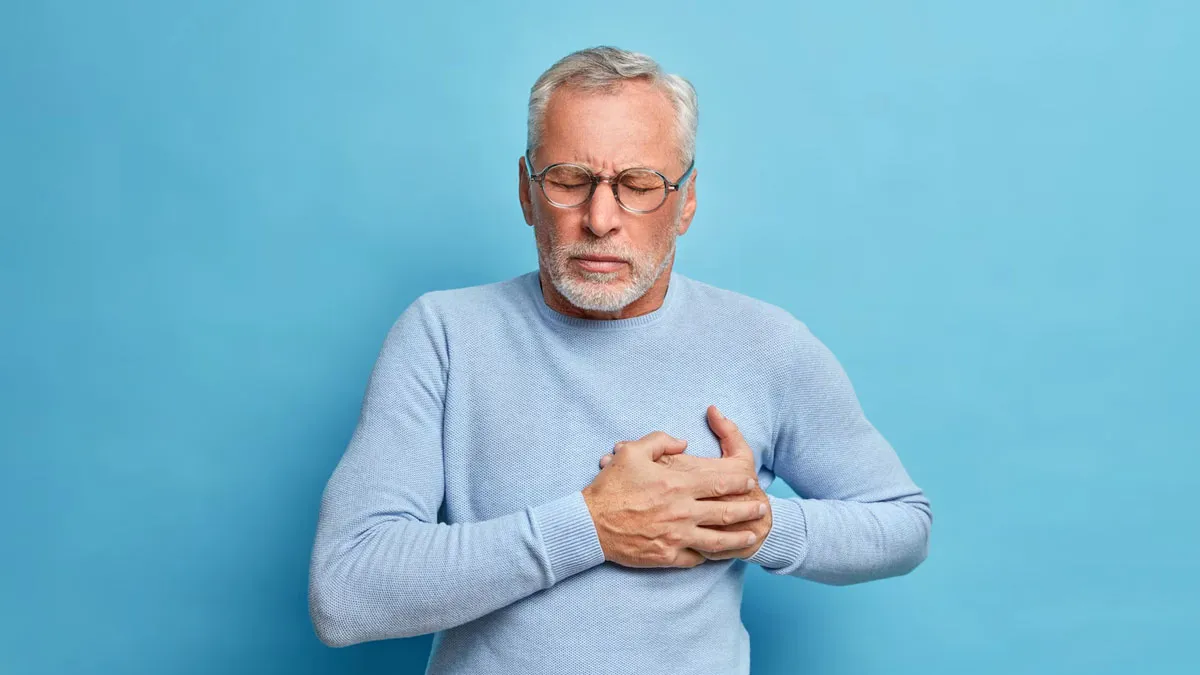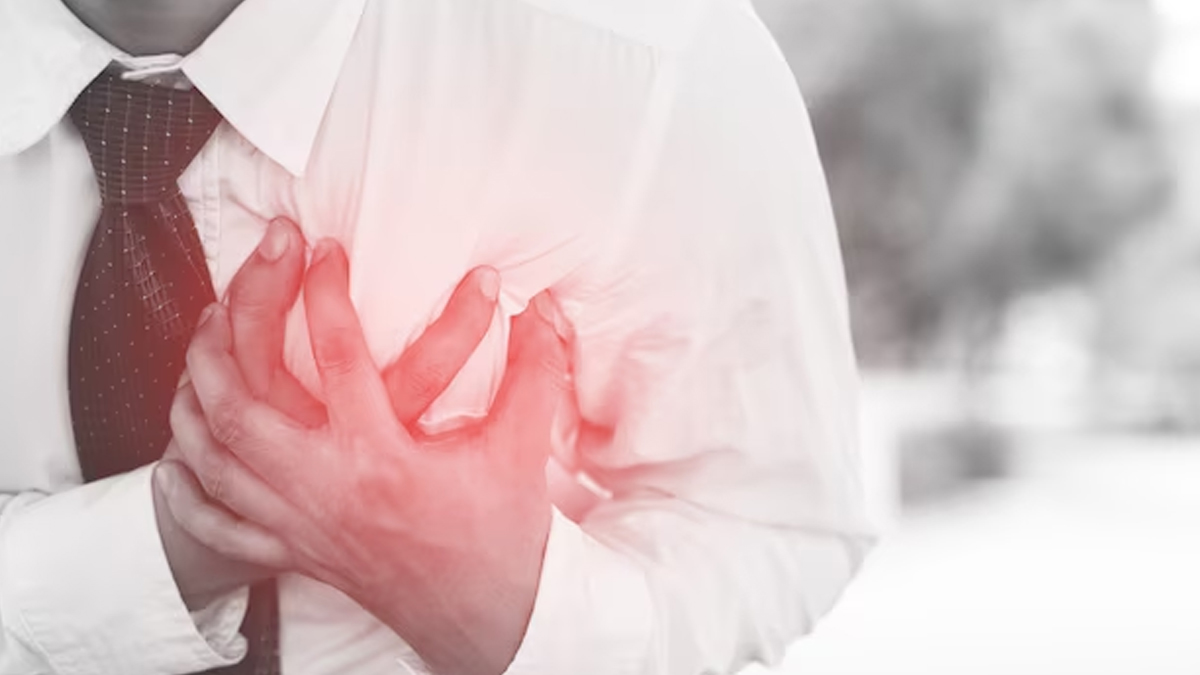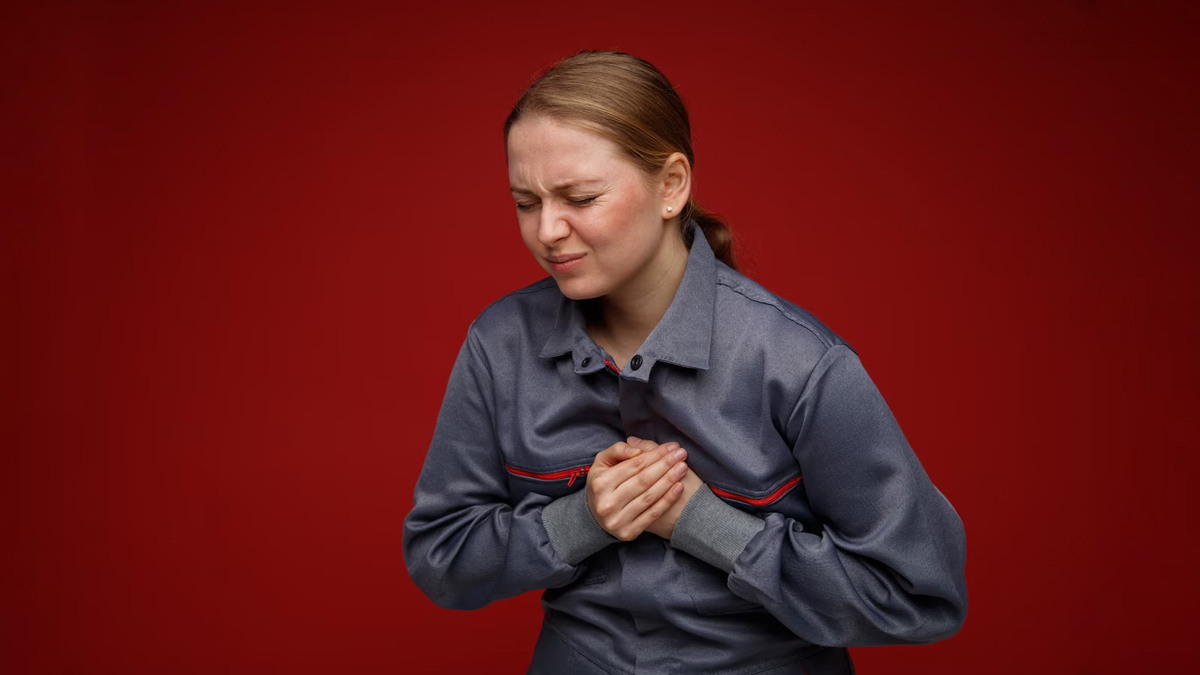
Have you ever felt your heart flutter – but not in a good way? Did you feel restless simultaneously? If so, then you could be experiencing heart palpitations, which could be due to various reasons. Some of the most common causes of heart palpitations are anxiety, stress, or panic attacks, along with certain beverages like caffeine and alcohol. A more concerning cause is heart attack, which is one of the leading causes of death worldwide. But how do you know what it is, or more specifically, how to know whether heart palpitations are being caused by a heart attack? Read to find out.
Table of Content:-
Also Read: Why Resting Heart Rate Matters For Your Health: An Age-By-Age Guide
What Are Heart Palpitations?

Speaking with the OnlyMyHealth team, Dr Prateek Chaudhary, Senior Consultant Interventional Cardiologist, Asian Institute of Medical Sciences, Faridabad, describes heart palpitations as an abnormal sensation or awareness of his or her own heartbeat. Heart palpitations are sensations where your heart feels like it is pounding, fluttering, or beating too fast.
Some people describe it as a “skipped beat” or a “racing heart”, adds Dr Chaudhary, explaining further that palpitations can happen for a few seconds or minutes and may be felt in the chest, throat, or neck. While they are often harmless, they can sometimes indicate an underlying heart condition.
How To Recognise Heart Palpitations Caused By A Heart Attack

Heart palpitations are most commonly caused by anxiety, which can be managed with various relaxation techniques. However, anxiety-related palpitations are usually triggered by stress, worry, or panic attacks and often come with sweating, shaking, or shortness of breath. They may improve if you relax or take deep breaths.
In comparison, heart attack-related palpitations are usually accompanied by other serious symptoms like chest pain, dizziness, and discomfort in the arms or jaw, says Dr Chaudhary. “Unlike anxiety palpitations, they do not go away easily and may worsen over time. If you are unsure, it is always best to seek medical advice. Classical symptoms of heart attack are usually chest pain, shortness of breath, or sweating.”
According to the doctor, patients can also have symptoms of palpitations occasionally in a heart attack. Palpitations during a heart attack usually indicate arrhythmia. A special type of arrhythmia known as ventricular tachycardia can be seen in heart attack patients, and it has serious implications if not treated immediately.
When Is It A Sign Of Emergency?
You should seek immediate medical help if your palpitations are accompanied by chest pain, fainting, or severe shortness of breath; last for a long time or occur frequently; happen along with dizziness or confusion; and feel unusually strong or irregular.
If you ever feel unsure about your symptoms, it’s always safer to call emergency services rather than wait.
Also Read: Exercise And The Heart: Expert Explains How Much Is Enough For A Healthy Heart?
Lifestyle Changes To Reduce Risk Of Heart Attack

Lifestyle modifications can help prevent palpitations and reduce the risk of heart disease. Some effective steps include:
- Managing stress through meditation, deep breathing, or relaxation techniques
- Avoiding caffeine, alcohol, and smoking, as they can trigger palpitations.
- Exercising regularly to improve heart health (but avoiding extreme workouts if they cause palpitations)
- Eating a heart-healthy diet rich in fruits, vegetables, and whole grains
- Staying hydrated, as dehydration can sometimes cause palpitations
- Getting enough sleep, as poor sleep can contribute to heart rhythm issues
Conclusion
Heart palpitations are usually harmless, but they can sometimes signal a more serious heart problem. Dr Chaudhary notes, “If palpitations occur with chest pain, dizziness, or shortness of breath, immediate medical attention is necessary.”
He concludes by emphasising healthy lifestyle changes and says that it can significantly reduce the chances of palpitations and improve overall heart health. If you frequently experience palpitations, it is best to consult a doctor to determine the cause and get the right treatment.
Also watch this video
How we keep this article up to date:
We work with experts and keep a close eye on the latest in health and wellness. Whenever there is a new research or helpful information, we update our articles with accurate and useful advice.
Current Version
